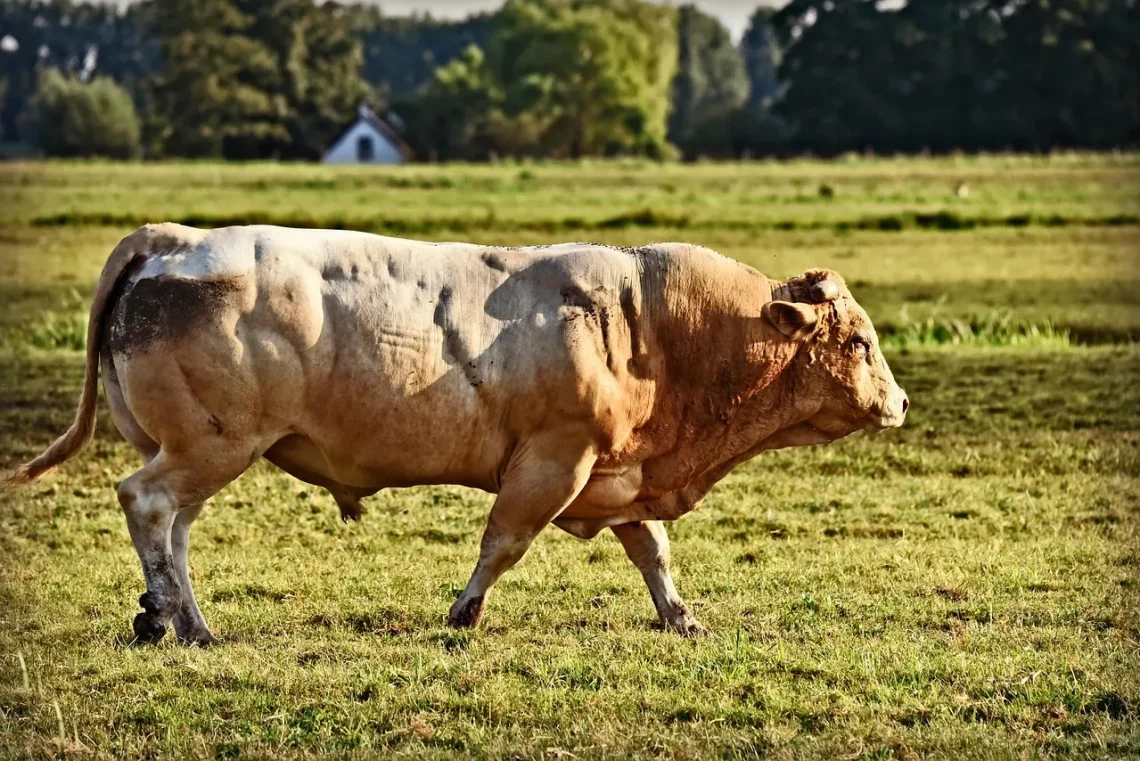
The Ultimate Guide to Mini Bulls: Characteristics and Care Tips
Miniature bulls, or mini bulls, have gained popularity among animal enthusiasts and potential pet owners alike. These pint-sized versions of traditional cattle are charming, playful, and can provide companionship in a unique way. With their endearing appearance and gentle disposition, mini bulls are quickly becoming favored in various settings, from family farms to urban backyards. Their manageable size makes them an appealing choice for those who may find full-sized cattle daunting.
Additionally, these animals are often seen as a bridge between conventional livestock and loving pets, offering the opportunity for educational experiences for children and adults alike. As with any pet, understanding their needs, behaviors, and characteristics is crucial for ensuring a fulfilling life for both the animal and its owner. The increasing interest in mini bulls has also led to a wealth of resources available for prospective owners, from care guides to social media groups dedicated to sharing experiences and tips. This guide aims to provide a comprehensive overview of mini bulls, highlighting their characteristics, care requirements, and considerations for prospective owners.
Understanding the Characteristics of Mini Bulls
Mini bulls are a smaller variant of traditional cattle, typically weighing between 400 to 800 pounds, and standing about 36 to 48 inches tall at the shoulder. Their diminutive size does not diminish their robust nature; these animals still possess the strength and vigor associated with larger breeds. Mini bulls come in various colors and patterns, including spots, stripes, and solid colors, making them visually appealing to many.
One of the most notable characteristics of mini bulls is their gentle temperament. Generally, they are known for being friendly and social, often forming strong bonds with their human caregivers. Proper socialization from a young age is essential, as it helps them develop a calm demeanor and reduces the likelihood of aggressive behavior. Mini bulls thrive on companionship and should ideally be kept with other animals, whether that be other mini bulls or different types of livestock.
In terms of health, mini bulls are resilient animals, but like all breeds, they can be prone to specific health issues. Regular veterinary care, proper nutrition, and exercise are vital to maintaining their well-being. Owners should be aware of common concerns such as obesity, hoof problems, and digestive issues, which can arise from improper feeding or lack of movement.
Another interesting aspect of mini bulls is their intelligence. They are quick learners and can be trained to follow commands, making them suitable candidates for various activities, including agility training and even participating in shows. Their intelligence also means they require mental stimulation; otherwise, they may resort to undesirable behaviors due to boredom.
Understanding the characteristics of mini bulls is crucial for potential owners. Their friendly nature, intelligence, and manageable size make them a wonderful addition to the family, but they require commitment and care to thrive.
Essential Care Tips for Mini Bulls
Caring for mini bulls involves several essential practices that contribute to their overall health and happiness. First and foremost, providing a balanced diet is critical. Mini bulls should be fed high-quality hay or pasture grass, which serves as the foundation of their diet. Grain can be included, but it should be done in moderation to prevent obesity, which is a common problem among mini bulls. Fresh water should always be available, ensuring they stay hydrated, especially during hot weather.
Housing is another important consideration. Mini bulls require a safe and comfortable living environment. A sturdy fence is necessary to keep them contained, as they are curious animals that may wander off if given the chance. The shelter should protect them from extreme weather conditions, providing shade in summer and warmth in winter. Adequate space is also vital; while mini bulls do not require as much land as their larger counterparts, they still need room to roam, graze, and engage in natural behaviors.
Regular veterinary check-ups are essential for monitoring the health of your mini bull. Vaccinations, deworming, and dental care should be part of their routine health management. Additionally, hoof care is particularly important, as neglecting hooves can lead to pain and mobility issues. Owners should regularly inspect and trim their mini bull’s hooves to keep them healthy and prevent complications.
Exercise is another crucial aspect of care for mini bulls. They need daily movement to maintain a healthy weight and avoid boredom. Engaging them in activities such as walking or allowing them to graze in a secure area can provide both physical and mental stimulation.
Socialization should not be overlooked. Mini bulls are social animals and benefit from interaction with humans and other animals. They thrive on companionship and can become depressed or anxious if left alone for extended periods.
By following these care tips, owners can ensure that their mini bulls lead healthy, happy lives, which in turn enriches the experience for everyone involved.
Living with Mini Bulls: What to Expect
Living with mini bulls can be a delightful experience, but it also comes with unique challenges and considerations. One of the first things to understand is that, despite their smaller size, mini bulls are still livestock and have specific needs that must be met. They require a commitment of time, effort, and resources to ensure their well-being.
One of the most appealing aspects of having mini bulls is their friendly nature. They tend to be affectionate and enjoy interacting with their human companions. Many owners report that their mini bulls exhibit playful behaviors, such as running around, playing with toys, and even cuddling. This affectionate behavior can create a strong bond between the animal and the owner, enhancing the overall experience of animal companionship.
However, potential owners should also be prepared for the responsibilities that come with having a mini bull. Regular feeding, grooming, and health checks are a part of daily life. Additionally, owners must ensure that they provide adequate mental stimulation to prevent boredom and destructive behaviors. This can include interactive toys, training sessions, or even simple activities like exploring new areas together.
Another consideration is the potential for noise. Mini bulls can be vocal, and while they may not be as loud as larger cattle, their sounds can still be noticeable, especially in a quiet neighborhood. It’s essential for potential owners to consider their living situation and community regulations regarding livestock before bringing a mini bull home.
Moreover, social interactions are vital for mini bulls. They thrive in the company of other animals and can become lonely if kept alone. Owners should consider keeping more than one mini bull or ensuring regular interaction with other pets or livestock to meet their social needs.
Finally, owning a mini bull can also provide opportunities for educational experiences, especially for families with children. Kids can learn about responsibility, animal care, and the importance of empathy and compassion towards animals.
In conclusion, living with mini bulls can be a rewarding experience filled with joy and companionship. However, it requires a commitment to their care and understanding of their needs to ensure a harmonious living environment.
**Disclaimer:** This article is not intended as medical advice. For any health concerns regarding your mini bull or any other animal, please consult with a qualified veterinarian.




